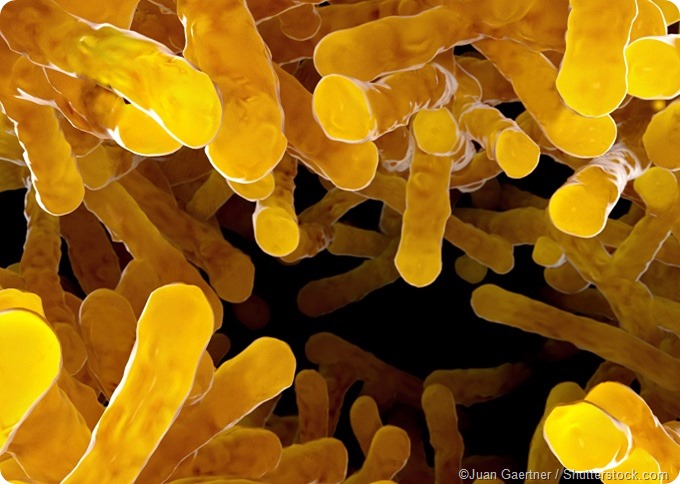The human body is colonized with a dense community of more than 100 trillion microbes, most of which live in the gut. The “good” microbes in the gut aid the digestion of food, regulate the immune system, make certain vitamins and protect against harmful bacteria.

Some gut microbiota provide little or no host benefit, while others have a symbiotic relationship with the host, where both the host and microbe benefit. The bacterial species Lactobacillus, for example, helps to digest food for nutrient absorption. In return, carbohydrates in the gut provide these bacteria with an energy source. Clostridium perfringens, on the other hand, is a harmful bacteria that releases toxins and causes diarrhea.
The main role the gut is known for is digestion. It releases enzymes that break down food so that nutrients can be absorbed into the bloodstream and used or stored by cells. A less well-known role that the gut plays is immune surveillance, with the gut lining serving as a means of protection against antigens and microbes from the external environment.
Given that the intestine is the largest organ in the body, its mucosa is the largest surface area in the body to come into contact with antigens that enter the body. Certain bacteria in the gut keep down the growth of pathogens by competing with them for the occupation of attachment sites and the intake of nutrients. The gut microbiota also triggers the host to produce antimicrobial compounds.
The gut and metabolism
The gut also has an influence on metabolism and links have been established between microbes in the gut and the development of obesity, cardiovascular disease, and type 2 diabetes. The mechanisms behind these associations are not currently well understood, but the bacteria Lactobacillus gasseri SBT 2055, Lactobacillus rhamnosus ATCC 53103, Lactobacillus rhamnosus ATCC 53102, and Bifidobacterium lactis Bb12 are thought to play a role in maintaining a healthy body weight.
Obese and diabetic individuals have decreased amounts of the beneficial bacteria Faecalibacterium prausnitzii, which becomes more abundant in patients who start to lose weight after undergoing gastric bypass.
The gut and cardiovascular disease
Research has also shown that gut microbiota contribute to the progression of cardiovascular disease. When the vitamin choline and the amino acid derivative L-carnitine come into contact with certain intestinal bacteria, they are converted into trimethylamine, which passes into the liver where it is further modified into TMAO (trimethylamine-N-oxide).
TMAO is then circulated in the bloodstream where it promotes atherosclerosis by contributing to changes in cholesterol metabolism, causing vascular inflammation and the formation of arterial plaques.
The gut and mood
The gut microbiota also play a role in determining mood, an association referred to as the gut–brain axis, the communication between the gut and brain via the vagus nerve. In a murine model, ingestion of the probiotic Lactobacillus rhamnosus JB-1 led to reduced stress-induced production of corticosterone and lower levels of behavior associated with anxiety and depression.
Preclinical studies have also shown that this gut–brain axis seems to play a key role in irritable bowel syndrome, with the gut microbiota modifying the bidirectional communication between the brain and gut.
Achieving a healthy gut
A healthy and well-functioning digestive system colonized with “good” bacteria and the food sources those bacteria require, results in the body being well nourished and having an effective immune system. Clinicians are becoming increasingly aware of how important it is for people to ensure the correct balance of microbes in their gut in order to stay healthy.
Microbes that provide health benefits are referred to as probiotics. Ingesting probiotics can help to create the right microbial populations and therefore a healthy gut. Probiotics are found in yogurt and other fermented products and can also be taken in the form of a pill or dietary supplements. The mechanisms by which they provide benefits are as follows:
- Competing with pathogens for nutritional sources
- Reducing inflammation, therefore providing an environment that favors colonization of “good” bacteria
- Producing vitamins that nourish other “good” bacteria and the host
- Enhancing the function of the gut barrier
- Occupying the sites pathogens bind to
- Stimulating immune responses
Many healthcare providers now use probiotics to improve patient health and outcomes.
Further Reading
Last Updated: Feb 26, 2019